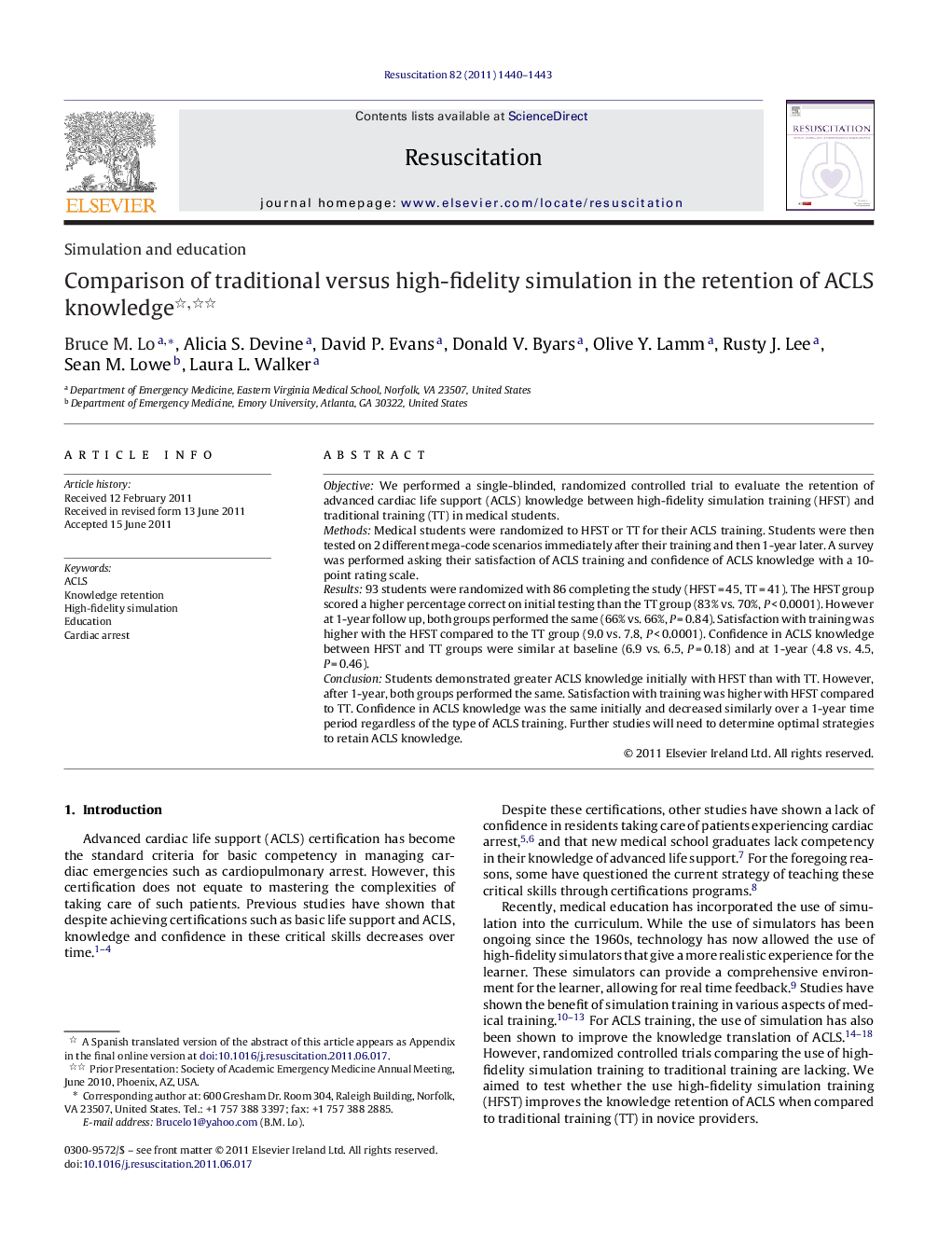| Article ID | Journal | Published Year | Pages | File Type |
|---|---|---|---|---|
| 3008952 | Resuscitation | 2011 | 4 Pages |
ObjectiveWe performed a single-blinded, randomized controlled trial to evaluate the retention of advanced cardiac life support (ACLS) knowledge between high-fidelity simulation training (HFST) and traditional training (TT) in medical students.MethodsMedical students were randomized to HFST or TT for their ACLS training. Students were then tested on 2 different mega-code scenarios immediately after their training and then 1-year later. A survey was performed asking their satisfaction of ACLS training and confidence of ACLS knowledge with a 10-point rating scale.Results93 students were randomized with 86 completing the study (HFST = 45, TT = 41). The HFST group scored a higher percentage correct on initial testing than the TT group (83% vs. 70%, P < 0.0001). However at 1-year follow up, both groups performed the same (66% vs. 66%, P = 0.84). Satisfaction with training was higher with the HFST compared to the TT group (9.0 vs. 7.8, P < 0.0001). Confidence in ACLS knowledge between HFST and TT groups were similar at baseline (6.9 vs. 6.5, P = 0.18) and at 1-year (4.8 vs. 4.5, P = 0.46).ConclusionStudents demonstrated greater ACLS knowledge initially with HFST than with TT. However, after 1-year, both groups performed the same. Satisfaction with training was higher with HFST compared to TT. Confidence in ACLS knowledge was the same initially and decreased similarly over a 1-year time period regardless of the type of ACLS training. Further studies will need to determine optimal strategies to retain ACLS knowledge.
